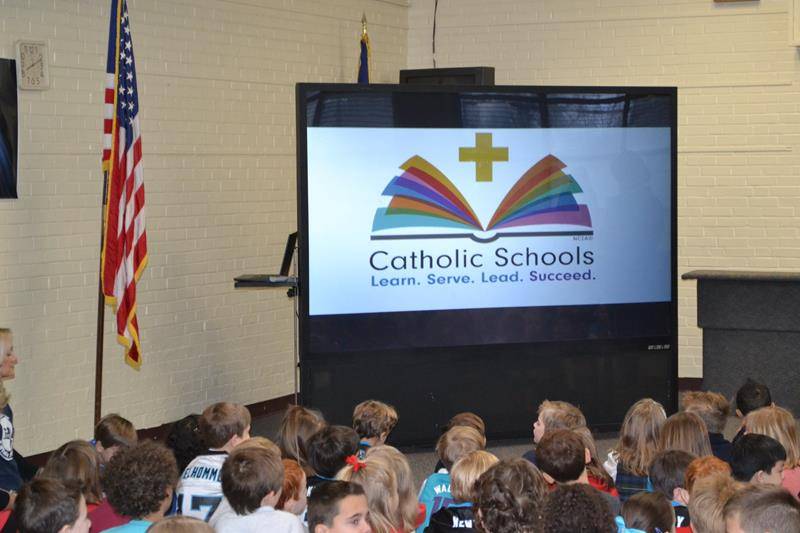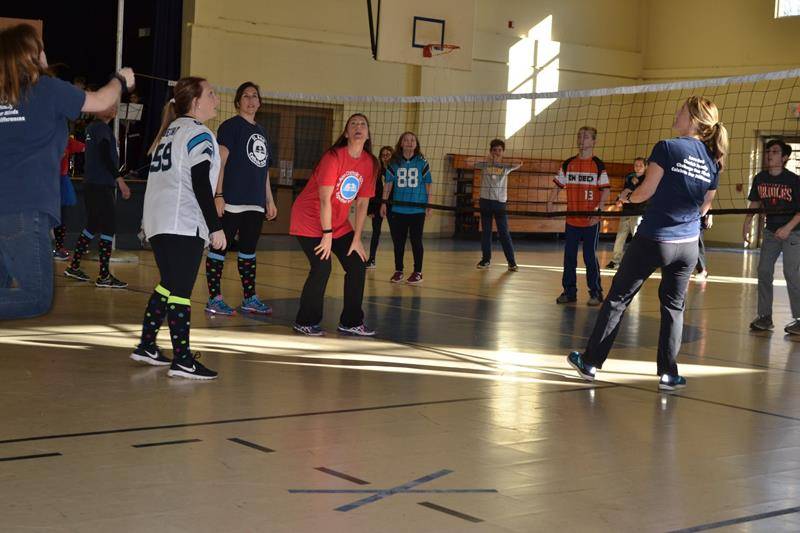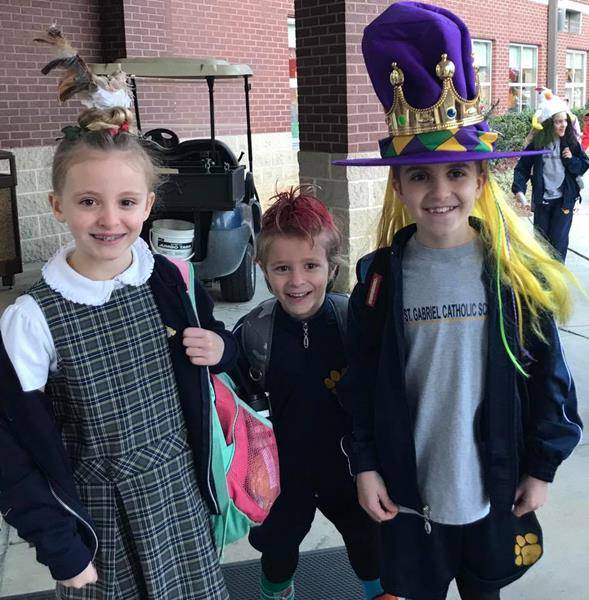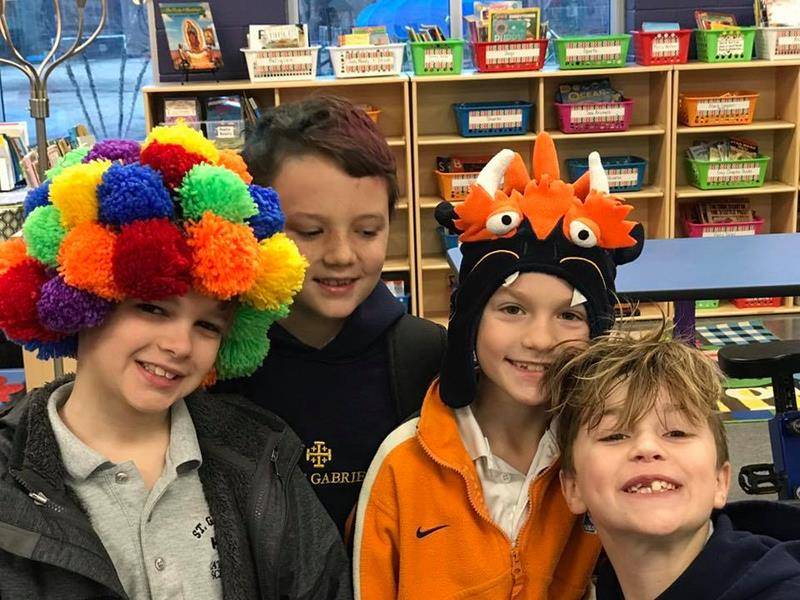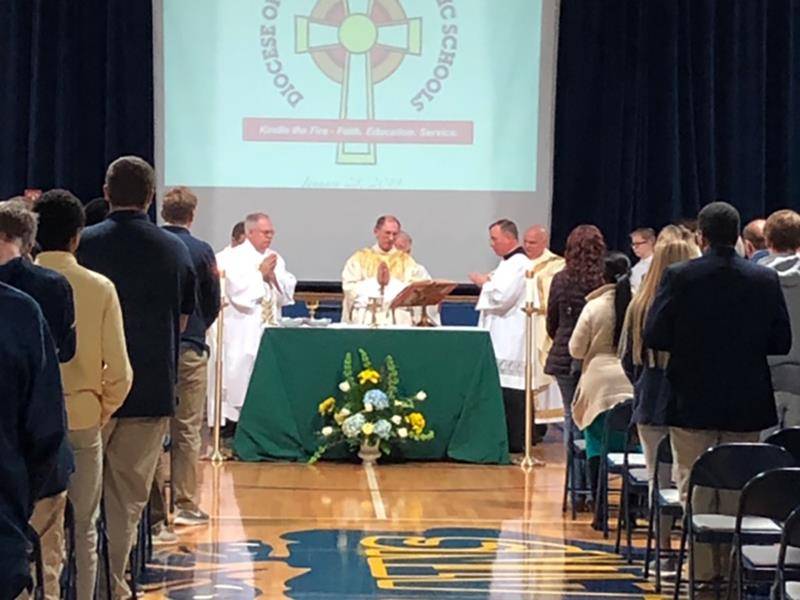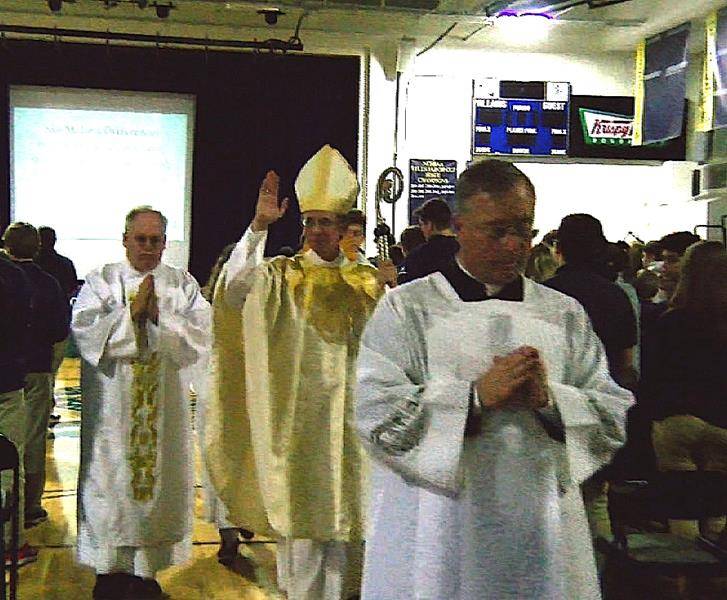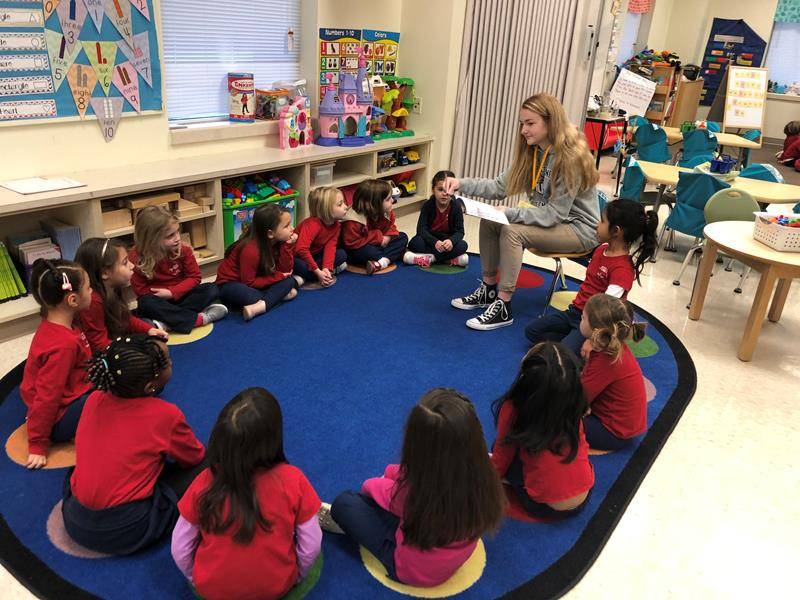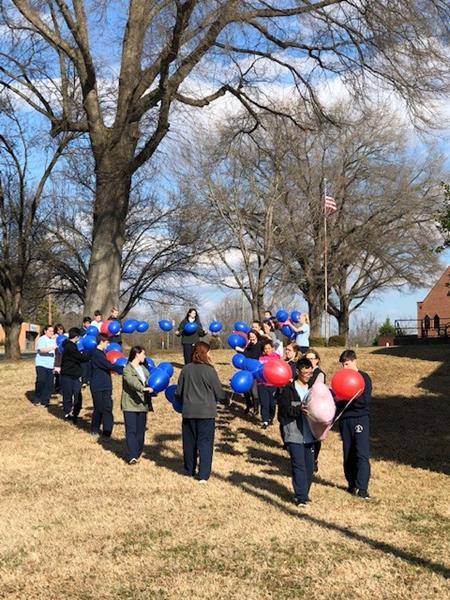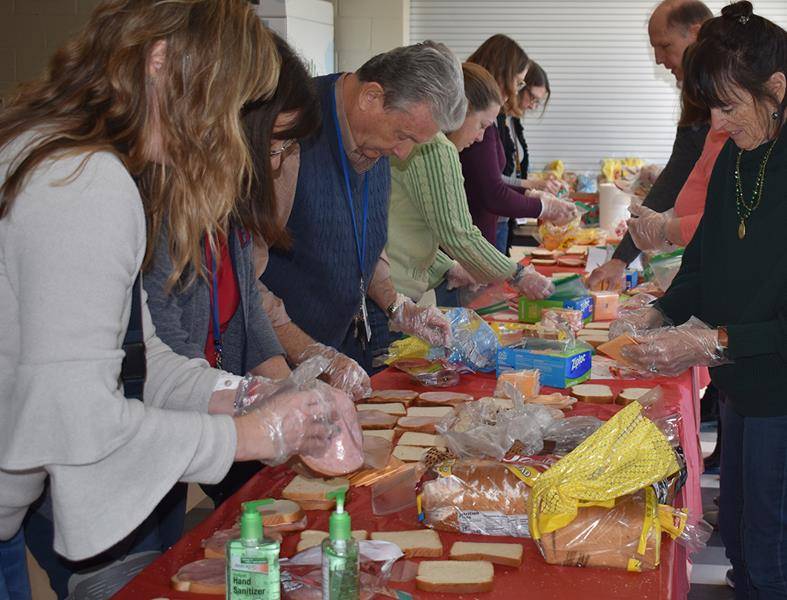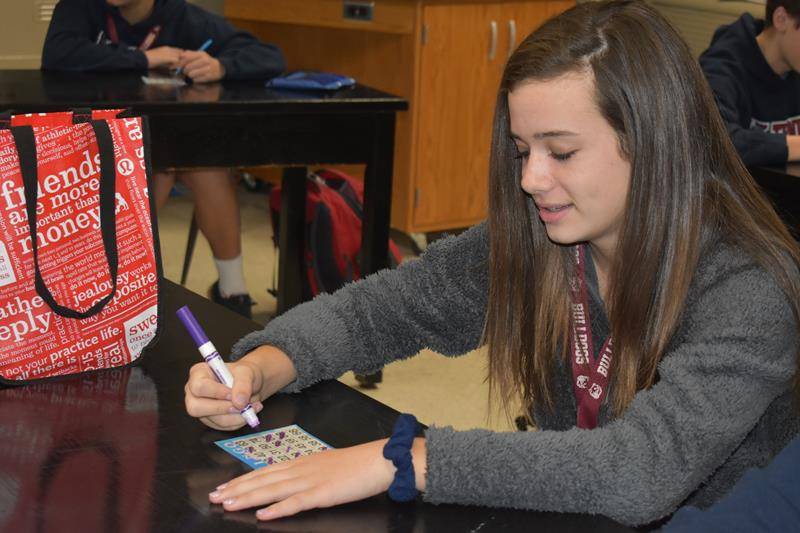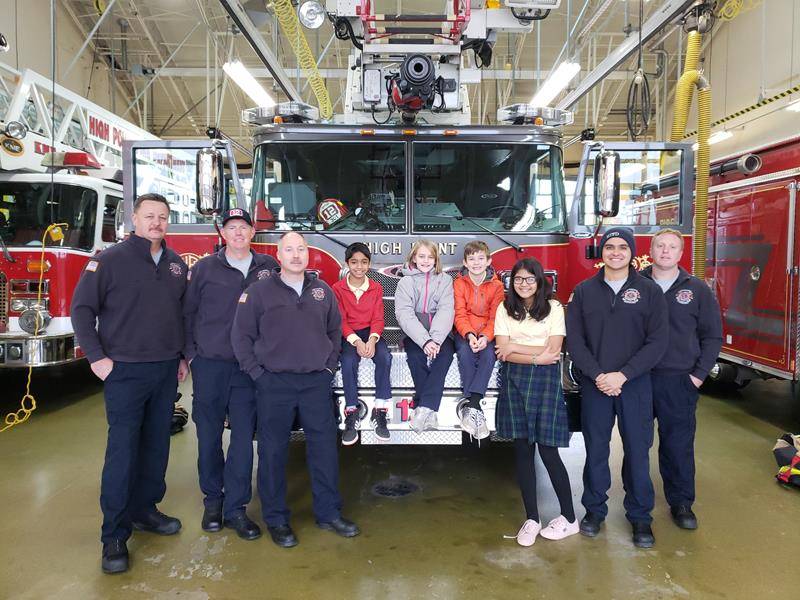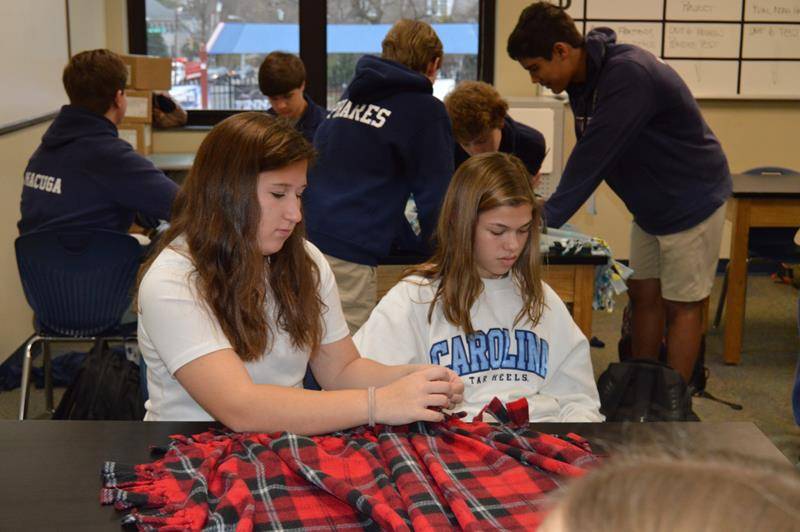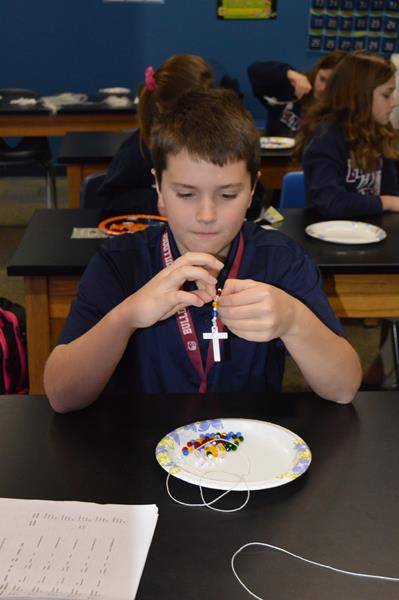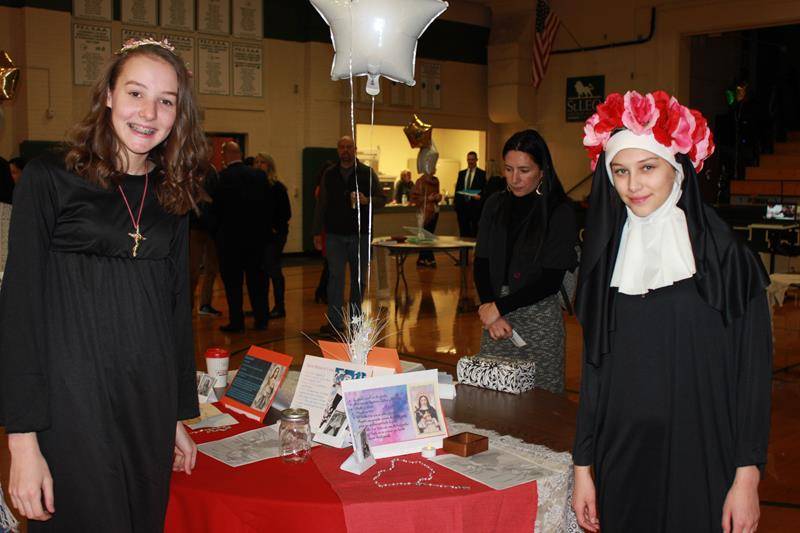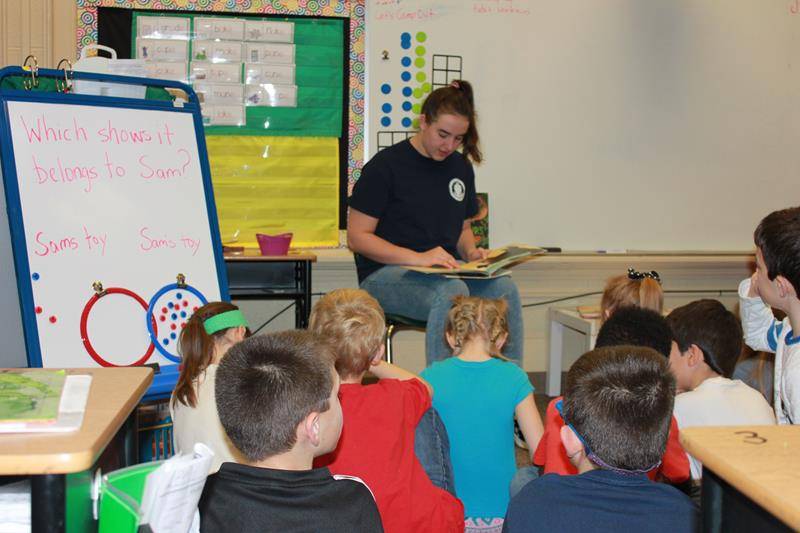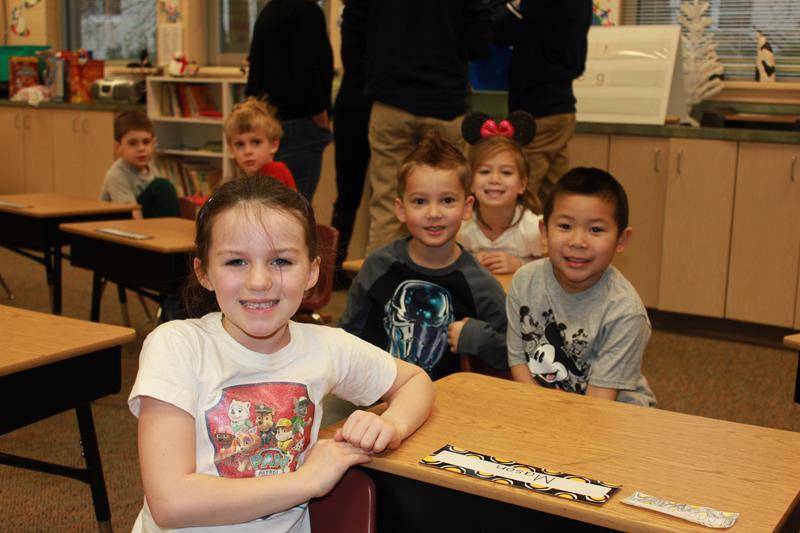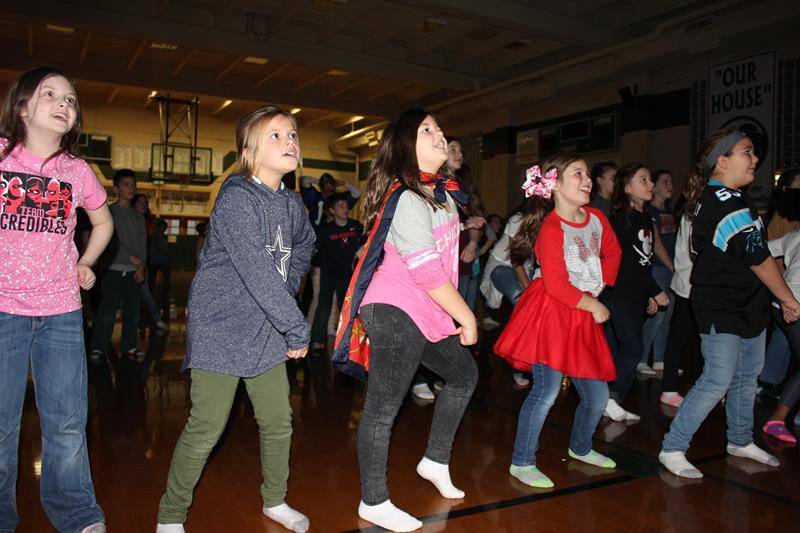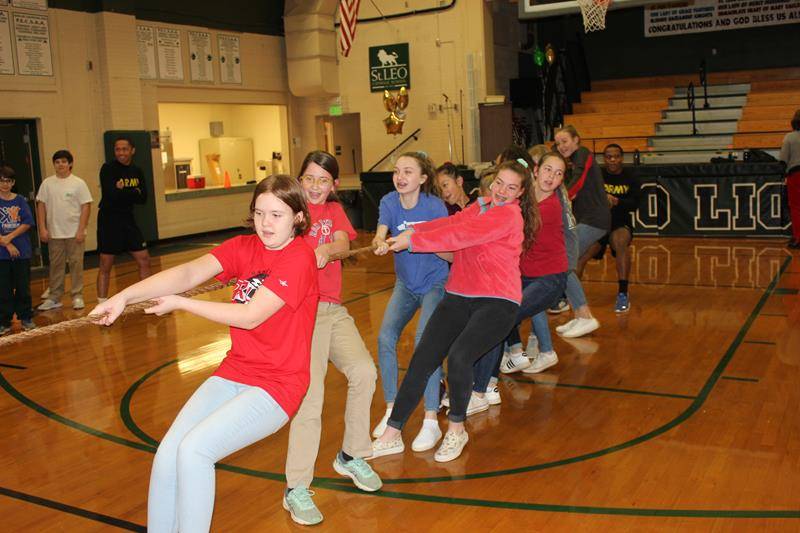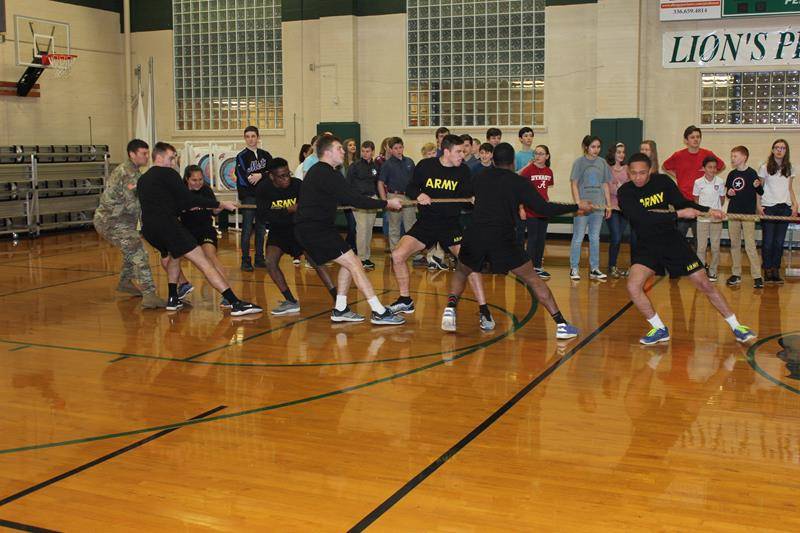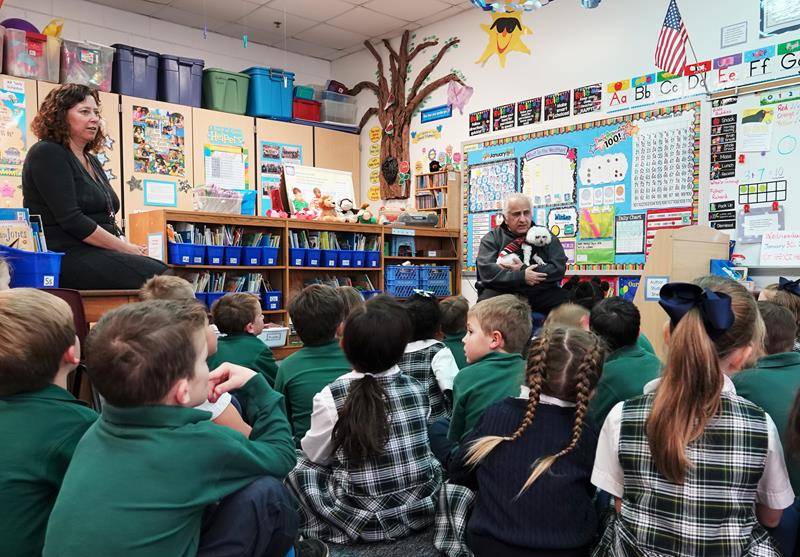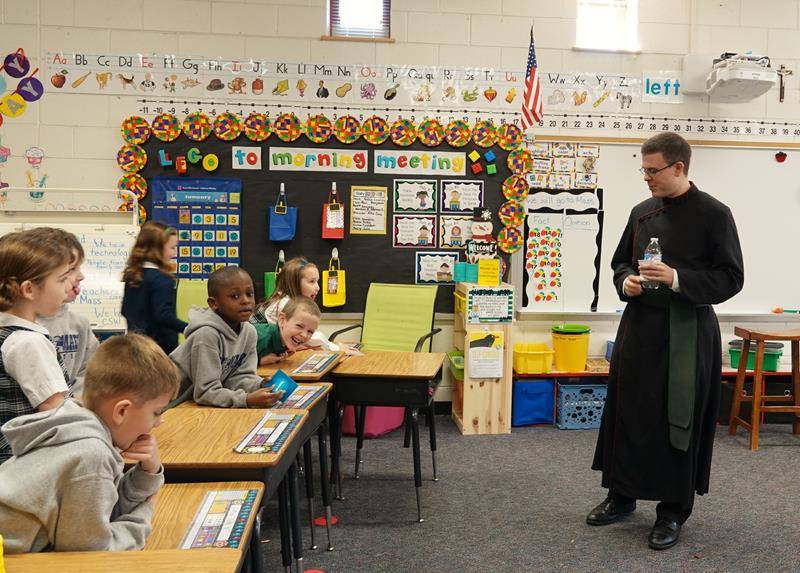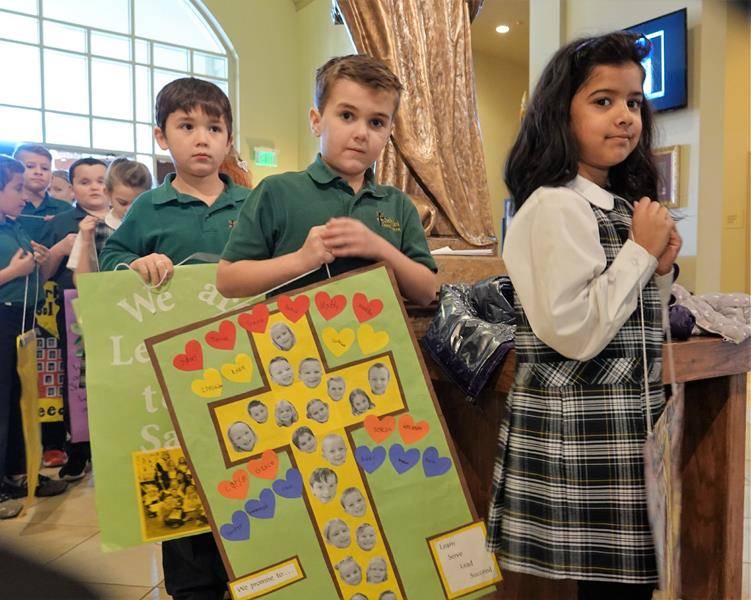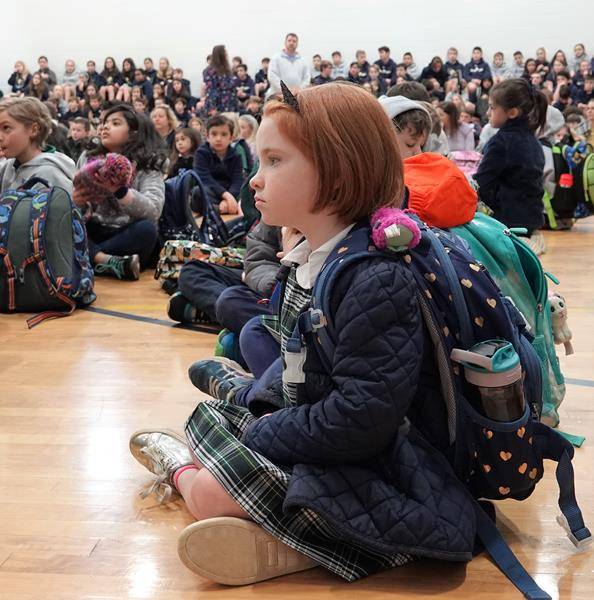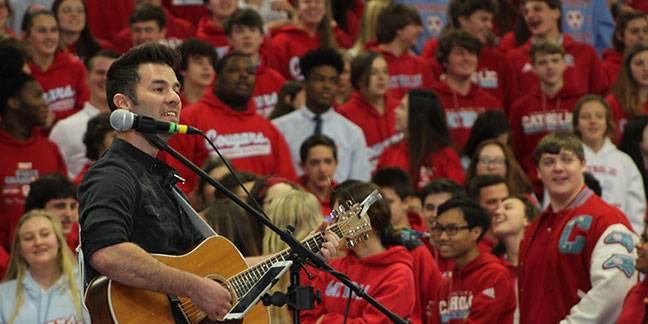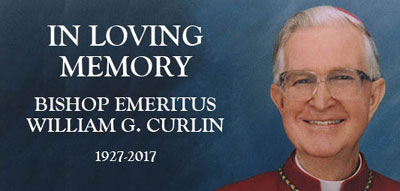 CHARLOTTE — One year after his death, Bishop William Curlin’s friends remember him with fondness and love.
CHARLOTTE — One year after his death, Bishop William Curlin’s friends remember him with fondness and love.
Bishop Curlin died Dec. 23, 2017. Champion of the poor, comforter of the sick and the dying, friend of St. Teresa of Calcutta, Bishop Curlin preached the love of Jesus Christ during more than 60 years of priestly ministry, first in the Archdiocese of Washington, D.C., and 23 years in the Diocese of Charlotte.
His death during his favorite season – Christmas – was noted by many at his funeral Mass, and it continued to be a source of comfort to his friends as they marked the one-year anniversary of his passing.
During a memorial Mass offered Dec. 23, 2018, at Belmont Abbey in Belmont, near the cemetery where Bishop Curlin is interred, Benedictine Abbot Placid Solari noted that the bishop’s death at Christmas “was perhaps a special gift of divine favor.”
“Bishop Curlin loved Christmas and its celebration,” Abbot Placid said. “His garage was stuffed full of Christmas decorations, and during the holidays every inch of his house was decked out in Christmas finery. No department store Christmas display has ever come anywhere close to matching the Curlin setup!”
“We ought ask ourselves why the bishop went beyond all bounds of extravagance in his enthusiasm for the celebration of Christmas. It certainly wasn’t to impress anyone by having the biggest or best display. It wasn’t because of gifts, because he gave everything away.
“Bishop Curlin surrounded these days with such a display because it was an outward expression of his deep love for Jesus and the profound hope and joy which that love gave him,” he said.
It was “not some naïve sentiment, but rather the expression of his conviction that God ‘destined us for adoption to Himself through Jesus Christ,’” said Abbot Placid, quoting from Ephesians 1:5.
Bishop Curlin’s love of Christmas also reflected “a memorial of God’s never-failing kindness towards lost humanity, towards each one of us sinners,” he said, “especially to the sick, the downtrodden, the homeless, the elderly, the poor and the disheartened.”
Bishop Curlin’s close friend Father Brian Cook, pastor of St. Leo the Great Church in Winston-Salem, said he was grateful to Abbot Placid for offering the Dec. 23 memorial Mass. “Bishop Curlin loved Abbot Placid, the monks and the abbey. It was very kind of them all to remember the bishop so lovingly.”
Father Cook said the one-year anniversary of Bishop Curlin’s death “was a difficult day” for him. “We all have experienced a great loss of kindness with the bishop’s passing,” he said. “Along with his transparent faith and kindness, Bishop Curlin’s legacy to the people of God will always be his unwavering devotion to the poor. He knew firsthand of the need and the responsibility of caring for the most vulnerable among us. He assured us that in caring for the poor, they would see Christ within us.”
Monsignor Anthony Marcaccio, pastor of St. Pius X Church in Greensboro and Bishop Curlin’s friend and former priest secretary, echoed Father Cook’s comments.
“Bishop Curlin knew the human face of suffering. He rarely preached without mentioning it or the sick and the poor, and the cross.” But “as often as he preached the cross, he personally loved Christmas and all that came with it: the Christ Child, the joy, the gift giving, the Blessed Virgin Mary and the Nativity,” he said.
This past Christmas, he said he considered not putting up a Christmas tree, but the memory of Bishop Curlin spurred him on.
He recounted, “During the decorating, when I was almost finished, came the task of untangling the garland which was hastily put away the year before. I decided to forgo it, but heard in the back of my head the bishop saying, ‘Put it on. Untangle it. Put it on. It gives the tree that “ole timey” Victorian and finished look.’ So I did.
“After the last box was taken up to the attic, I sat down, rather self-satisfied, and lit the tree. With that, my dog Tater came in, circled under the tree, and made a little nest in the tree skirt and sighed that all was right with the world and we were ready for Christmas. I smiled real big inside as I imagined Bishop Curlin saying, ‘See, wasn’t that worth it?’”
“So my tree is still up,” Monsignor Marcaccio continued. “Tater and I take naps and read near it nightly. Every time I walk by it in this Christmas season, I think of Father Christmas, St. Nicholas, and his spiritual son, Bill Curlin.”
Friend Rick Menze, who knew the late bishop closely through the Order of Malta, said he cannot think of Bishop Curlin without also thinking of his late mother.
The day his mother first met Bishop Curlin, Menze recalled, remains “an enduring memory.”
Bishop Curlin loved his two chihuahuas, Missy and Cindy, and he loved Frostys from Wendy’s, Menze explained. One day his mother asked Menze if she could meet the bishop, so one Sunday, they stopped at Wendy’s, picked up a couple of Frostys and went over to the bishop’s house.
“He must have heard us pull up because he met us at the back door and greeted my mom, whom he had never met, like a long lost sister,” Menze recalled. “He immediately invited her into his family room, sat her down, put Missy in her lap and said, ‘Here, you hold the white one while we talk.’
“Bishop picked up Cindy and for the next hour and a half, he spoke with her like she was the only person on Earth.”
“Bishop Curlin’s concern for and ability to connect with others is legendary – a gift that really showed that Sunday,” Menze said. “Afterward, the only thing my mom could talk about was ‘that wonderful man!’”
— SueAnn Howell, senior reporter
Check out nearly-discovered archival footage of Bishop Curlin’s installation as the third bishop of Charlotte and St. Teresa of Calcutta’s historic visit to Charlotte
Bishop Curlin leaves money to aid the poor
CHARLOTTE — When he died, Bishop William Curlin left money in his will to help two causes “dear to his heart”: the poor and women religious.
He gave $50,000 from his estate to an endowment created in his name: the Bishop Curlin Endowment Fund for the Poor in the Foundation of the Roman Catholic Diocese of Charlotte. Established with an initial gift of $20,000 in 2006, this endowment’s principal now totals more than $200,000.
The endowment supports the work of Catholic Charities Diocese of Charlotte as well as the Missionaries of Charity, the religious order founded by his close friend St. Teresa of Calcutta, and a community of Carmelite nuns in Maryland whom the late bishop had befriended.
When he learned that an endowment fund had been set up in his name, Bishop Curlin responded in a letter to the diocese, “I pray that in years to come (and long after I am gone) this fund will be able to help the poor in this diocese. There is no finer memorial.”
Monsignor Anthony Marcaccio, pastor of St. Pius X Church in Greensboro, executor of Bishop Curlin’s estate and his close friend, noted that Bishop Curlin’s estate gift to the endowment will “endow the two ways of the apostolic life” – the active and contemplative ministries of the Church, at the local and global levels.
“One of the beneficiaries is the Carmel of Port Tobacco, Maryland, a contemplative house of Carmelite sisters that he knew well from his ministry in the Archdiocese (of Washington, D.C.), but called upon frequently as bishop of Charlotte,” Monsignor Marcaccio said. Bishop Curlin often contacted the sisters with special prayer intentions for individuals or efforts here in the Charlotte diocese, he said.
“Another beneficiary is the Missionaries of Charity, also contemplative, but most often associated with being on the front line in the field of compassion and works of mercy,” Monsignor Marcaccio said. Coupled with the aid to Catholic Charities Diocese of Charlotte, he said, Bishop Curlin’s estate gift supports “both work and prayer, the Martha and Mary of religious life” in the Church.
The estate gift illustrates “the bishop’s unique love, kindness and compassion,” added another of Bishop Curlin’s close friends, Father Brian Cook, who serves as pastor of St. Leo the Great Church in Winston-Salem.
“Bishop Curlin really supported the work of the foundation and saw its importance in the work of the Church,” added Jim Kelley, the diocese’s development director.
“He was always encouraging people to remember the Church in their estate plans, and he did just that with his estate plan. He was an example of how to live your life loving Jesus and an example of what you do with your financial gifts when you die. I hope more parishioners will follow his example.”
Belmont Abbey College establishes Curlin scholarship
BELMONT — Belmont Abbey College is establishing the Bishop William G. Curlin Scholarship and Bishop Curlin Scholars Program. The Belmont Abbey Board of Trustees hopes to raise an initial $2.5 million to begin the program. The program is anticipated to assist 15 Curlin Scholars per year, up to at least 60 scholars.
Based on Bishop Curlin’s episcopal motto, “Sentire Cum Christo” (“Have in you the mind of Christ”), students who receive the scholarship will gain firsthand knowledge of what it means to know, love and serve Christ. They will participate in meetings where specific readings, lectures and speakers will integrate themes of service; work with ministries to gain firsthand experience caring for the poor, sick and suffering; participate in summer internships with non-profits; and go on mission trips to broaden their horizons.
“After listening to Bishop Curlin you felt you personally knew Mother Teresa and wanted to follow her good advice of never worrying about numbers, but instead helping one person at a time and always starting with the person nearest you. That is the reason for creating the Bishop Curlin Scholarship. It will help young men and women follow Bishop Curlin in his imitation of Mother Teresa in service to those most in need wherever they are met,” said Dr. Bill Thierfelder, president of Belmont Abbey College.
— SueAnn Howell, senior reporter
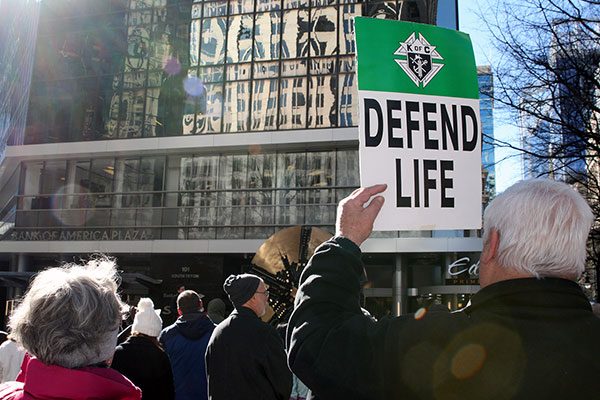 CHARLOTTE — "Our defense of the innocent unborn must be clear, firm and passionate."
CHARLOTTE — "Our defense of the innocent unborn must be clear, firm and passionate."
Those words by Father Peter Ascik, keynote speaker at the 13th annual March for Life Charlotte, described the spirit of the 200-plus people who marched and prayed in uptown Charlotte Jan. 11 to give witness to the dignity of all human life.
Echoing the words of Pope Francis to the Pontifical Academy for Life in 2018, Father Ascik encouraged everyone to "engage in clear, public pro-life witness."
"We must be clear about the human dignity of each unborn child," he said to the crowd gathered in Independence Square. "Our society with all its sophistication, all its technology, all its money and power, tries desperately to erase the unborn child from our sight, from our minds, and especially from our hearts."
"We must be firm. We must not waver in our commitment to the pro-life cause, despite all the opposition, despite all the propaganda arrayed against us," he said.
As he talked, marchers held pro-life signs and handed out information pamphlets to people walking by on their lunch hour through Independence Square. Their mile-long march began at the Diocese of Charlotte Pastoral Center and ended at the Charles R. Jonas Federal Courthouse, where they prayed the sorrowful mysteries of the rosary and Chaplet of Divine Mercy in reparation for the sin of abortion.
Andrea Hines of the Silent No More campaign noted that the number of abortions continues to decline and more abortion mills are closing, but thevictory is not won as long as abortion is legal and people are being duped by the many lies about abortion.
"Marchers, never give up!" Hines urged, as the crowd cheered.
Father Ascik described how seeing photos of aborted babies and seeing the brave witness of others in the pro-life movement convinced him to join thecause while he was in college – even though the subject was uncomfortable.
"I finally decided after reflecting that I was more bothered by the fact that some people might go through their time in college, might go through their life, never thinking about abortion, never thinking about the unborn child and who and what he or she is, than I was by the fact that some people might be upset by the pictures."
During his outreach work, he said, "I saw more serious conversations take place about abortion in front of those pictures than I had witnessed before in my entire life. The pictures brought clarity – clarity for those passing by our display, yes – but also clarity for me because I myself had to spend some time with those images of unborn children ... see their fingers, toes, their faces, torn apart by the violence of abortion.
"I remember one image in particular: an unborn child, maybe 12 or 14 weeks, in the palm of someone's gloved hand. That child had a spine that was probably barely thicker than a pin, and that spine had been snapped in two by an abortionist. That experience changed me."
"As so often happens when we go out to evangelize others, it is we who are evangelized more deeply," he said.
The defense of the unborn, Father Ascik emphasized, is a fundamental human right. "Without the right to life, no life is secure. Without the right to life, no right is secure."
Abortion is not social welfare, he said. Instead, it's a cause of hate and violence.
"Abortion is the greatest destroyer of love and peace because it destroys the security of all human beings. If killing the child in the womb can be justified, then killing an infant can be justified, because birth becomes simply an arbitrary legal line. If killing the child in the womb can be justified, then killing an elderly person who is ill can be justified, because they too depend totally on our love and our care. If killing the child in the womb can be justified, then killing a person with intellectual disabilities can be justified, because personhood is simply given by the powerful to those who are capable.
"If killing the child in the womb can be justified, then anything can be justified."
That thought was echoed by Mount Holly resident Mary Ellen Schick, who is wheelchair-bound. She said she joined the March for Life Charlotte because standing up for the weak and vulnerable includes people like herself.
If babies can be killed, Schick said, "I am next. I hope people will march for my rights."
We must have compassion for those who have been victimized by abortion, Father Ascik also noted – loving both the unborn child and the mother in need, as well as loving the post-abortive women and the fathers and siblings who also suffer.
"Love them both," he said. "This must be the motto and the marching orders for all pro-life efforts. Love them both."
"Loving them both, we will be compassionate witnesses of the compassion of God," he said.
A parishioner from St. Mark Church said she came to the March for Life Charlotte because "one day I want to stand here and say abortion is illegal, and that one day women will choose life and not abortion."
A couple from Immaculate Conception Church in Forest City said they came to the March for Life Charlotte to stand up to protect the family, "which is the fiber of our faith and our nation and the world."
"We believe in the power of prayer and witness to change the world," they said.
Jessica Grabowski, the Diocese of Charlotte's Respect Life coordinator, expressed gratitude and support for the army of volunteers who organize the March for Life Charlotte each January.
"It's a great witness to be here in the city of Charlotte to show our fellow citizens how important this issue is."
Bob Loughlin, long-time co-coordinator of the March for Life Charlotte, said the effort each January is a hopeful cause.
"The precious little ones that have no voice, and seem to be powerless in society – we're that voice, we're the presence of Jesus to go out and be that presence among the people," he said. "And who knows? Maybe out here on their lunch hour, somebody will see our presence and maybe a little life will be saved in the process. If we can get one, one little life, saved, it's all worthwhile."
— Patricia L. Guilfoyle, editor. Photos by Patricia L. Guilfoyle.
See videos from the March for Life on Facebook.
Full speech from Father Peter Ascik during the March for Life
“Our defense of the innocent unborn must be clear, firm, and passionate:” this is how Pope Francis, in his recent letter on holiness, urges us to carry out our pro-life witness: he says we “must be clear, firm, and passionate.” (Gaudete et Exsultate, 101)
The Pope continues: “for at stake is the dignity of a human life, which is always sacred and demands love for each person, regardless of his or her stage of development.”
“Clear, firm, and passionate.” I’d like to take these words as our inspiration for today as we gather and we march on behalf of the innocent unborn.
“Clear, firm, and passionate:” I’d like to reflect on how each of these words describes our pro-life witness.
Today we must be Clear.
We must be clear witnesses to the truth of the humanity and dignity of the unborn child.
I remember how I found clarity on this issue when I was in college. My junior year I was invited to participate in the Genocide Awareness Project (GAP), a campus outreach which involves showing pictures of unborn children – including unborn children who have died by abortion – on college campuses.
I had not been active in pro-life work at college before, and I was nervous about doing it.
I knew that some people would be upset by it, and I didn’t know if it would be worthwhile in the end.
But I finally decided that I was more bothered by the fact that some people might walk around never thinking about this issue than that some people might be upset by the pictures. And so I went.
Over the course of two days working on this outreach, I saw more serious conversations about abortion take place in front of those pictures than I had ever witnessed in my life.
The pictures brought clarity: clarity for those passing by our display, but clarity also for me.
I myself had to spend some time with these images of unborn children, with their fingers, toes, backs and faces, torn apart by the violence of abortion.
I remember one image in particular, of an unborn baby, 12 or 14 weeks old, laying in the palm of a gloved hand, whose spine had been snapped in two by the abortionist.
As so often happens, when we go out to evangelize others, it is we who are evangelized more deeply.
That experience changed me.
I knew that I could no longer look myself in the mirror every day if I kept silent, if I was indifferent, if I left it to someone else to go out there and speak up about the evil of abortion, to speak up for these little ones who have no voice.
That clear, public pro-life witness brought me clarity about what was at stake, and about my responsibility to our unborn brothers and sisters.
And so we must engage in clear, public, pro-life witness. We must be clear about the human dignity of each unborn child.
Our society with all its sophistication, all its technology, all its money and power, tries desperately to erase the unborn child from our sight, from our minds, and especially from our hearts.
It fears the ultrasound, fears whatever reveals the truth that abortion kills an unborn child.
Our society twists words, making dehumanizing slurs out of medical terms for normal stages of life – stages of life that each person here has passed through. “Fetus” – as if being a fetus was any more or less significant than being an infant, a toddler, a teenager, or at any other stage of human life.
In the face of this denial, of this assault on the truth, we must be clear. Every human life begins in the womb. Every unborn child already has a mother, has a father, perhaps a brother or a sister.
Every unborn child is already part of a human family, part of the human family, and to kill this child by abortion is to cut off the life of someone who is already here.
“Our defense of the innocent unborn must be clear, firm, and passionate:” We must be Firm.
We must not waver in our commitment to the pro-life cause, despite all the propaganda arrayed against us, despite the scorn of those who oppose us.
We must be firm and we must be convinced that “the defense of unborn human beings is closely linked to the defense of all human rights, because without the right to life, no right is secure.” (Pope Francis, Evangelii Gaudium, 213)
“Without the right to life, no right is secure.”
There is a sinister parallel between the Roe v. Wade decision, which ruled that unborn children are not legal persons under the 14th Amendment, and the infamous Dred Scott decision of the 19th century, which ruled that African Americans were likewise not to be considered as “people or citizens” of the national community.
In both cases we see the arbitrary exercise of state power used to legally eliminate a whole class of persons.
We must be firm that we will not accept this. That no government and no law has the authority to deny any human being the right to life.
We must be firm that Roe v. Wade can and will follow Dred Scott into the dustbin of history.
And we must be encouraged by the witness of the civil rights movement, which shows us that even though this country has at times sinned grievously against human dignity, yet we are also capable of moral progress, of righting the wrongs of the past.
And to those who argue for abortion as a matter of social welfare or of human rights, we must say firmly, as Mother Teresa said, that:
“Any country that accepts abortion is not teaching its people to love, but to use any violence to get what they want. This is why the greatest destroyer of love and peace is abortion.” (Mother Teresa, National Prayer Breakfast Speech, 1994)
Abortion is the greatest destroyer of love and peace because it destroys the security of all vulnerable human beings.
If killing a child in the womb can be justified, then killing an infant can be justified, because birth becomes simply another arbitrary legal line.
If killing a child in the womb can be justified, then killing an elderly person who is ill can be justified, because they too depend on us for help.
If killing a child in the womb can be justified, then killing a person with intellectual disabilities can be justified, because personhood becomes a privilege given only to the capable at the convenience of the powerful.
If killing a child in the womb can be justified, then anything can be justified, and we are at the end of morality, the end of decency, the end of hope.
“Our defense of the innocent unborn must be clear, firm, and passionate:” We must be Passionate:
We must be passionate in our pro-life witness, passionate and compassionate. Our passion must always include compassion.
Compassion for the unborn child and compassion for his or her mother.
Compassion for the fathers and for the brothers and sisters wounded by abortion.
Compassion for those who are caught up in perpetuating this violence and this lie.
We recognize that true difficulties have driven so many women to abortion, and for many it is a painful decision.
But in the face of the pro-choice side which insists that we choose between the unborn mother and her child, which insists that we pit their interests against each other, we respond: Love them both.
Love them both – this must be the motto and the marching orders for all pro-life efforts.
Love them both – do not try to solve the difficulties in one person’s life by eliminating another person.
Love them both – love the unborn child in an at-risk pregnancy, and love the mother who feels hopeless or threatened.
Love them both – love the unborn child who has perished by abortion, and the mother who suffers from an abortion in the past.
Love them both, because every mother deserves our love and support, regardless of her circumstances.
Love them both, because every child is hope for the world.
Loving them both, regardless of the circumstances of any pregnant mother, of any family, we will be passionate witnesses of the compassion of God.
God is the source of all life. No life comes into the world without him willing it. But God is not just an impersonal source.
God is a Father and he takes responsibility for the life that He has brought into the world.
Again, I quote Mother Teresa:
“But what does God say to us? He says: "Even if a mother could forget her child, I will not forget you. I have carved you in the palm of my hand."
We are carved into the palm of His hand; that unborn child has been carved in the hand of God from conception and is called by God to love and to be loved, not only now in this life, but forever. God can never forget us.” (Mother Teresa, National Prayer Breakfast Speech, 1994)
Let us carry these words of Mother Teresa in our hearts to remind us how much we are loved, and how much each person with whom we come into contact is loved by our Father.
If we are to be truly pro-life, we must learn to know God as a provident Father, who takes responsibility for us, and we must teach others to know Him as a Father as well.
I was once praying in front of an abortion clinic in Asheville, and a couple who were on their way into the clinic pulled aside and began to talk to the sidewalk counselors.
As we prayed, the conversation went on, first with one counselor, then with another, for more than an hour. Finally, they agreed to go and visit a pro-life OB/GYN who had been called and who offered to see them immediately.
Later I heard that the woman, who had been solemn and closed off throughout the conversation, had a chance to see her baby on an ultrasound and to hear her child’s heartbeat.
They said that when she left the appointment, her face was changed, from burdened anxiety to relief and joy.
And her husband said something that has stuck with me ever since: he said, “I knew that she wouldn’t go through with it, because I knew when we got there, there would be someone there to help.”
“I knew there would be someone there to help:” that is our job as pro-lifers, to be that someone there to help the mother who feels driven to abortion, to help the father who feels he has no other choice.
“Our defense of the innocent unborn must be clear, firm, and passionate.”
May our clarity bring clarity to others, may our firmness help others to stand firm, and may our passion and compassion bring to the world a passion for life and compassion for those wounded by the culture of death.
Today let us march and witness with clarity, firmness, passion and compassion, on behalf of the innocent unborn, on behalf of all mothers wounded by abortion, on behalf of all vulnerable human beings, children of God our Father, who calls us to be their protectors and their champions.
‘Unique From Day One’ March for Life in D.C.
WASHINGTON, D.C. — The March for Life Education and Defense Fund has announced the details for the 2019 March for Life to be held on Friday, Jan. 18. “Unique From Day One” will be the theme of the annual march, which seeks to draw attention to the value of every life and the power of every American’s voice in speaking out for the unborn.
A Mass for pro-life advocates from North Carolina will be celebrated at the National Basilica of the Immaculate Conception on the campus of The Catholic University of America at 11:30 a.m. Friday, Jan. 18. Charlotte Bishop Peter J. Jugis will serve as the principal celebrant and Raleigh Bishop Luis R. Zarama will serve as homilist.
The “Unique From Day One” March for Life events will begin with a rally at noon on the National Mall, which will be followed at 1 p.m. by a march to the U.S. Supreme Court to hear testimony from women who regret their abortion.
Other D.C. March for Life events:
- A Youth Rally and Mass for Life hosted by the Archdiocese of Washington will take place on Jan. 18. The ticketed event will be held at the Verizon Center and the D.C. Armory, both in Washington, D.C. Doors open at 6:15 a.m. For more information about the event, visit youthrallyandmassforlife.org.
- The Paulus Institute for the Propagation of Sacred Liturgy, Washington, D.C., will hold the Seventh Annual Nellie Gray Mass Jan. 18, immediately after the March for Life, at 4 p.m. The Solemn High Mass in the Extraordinary Form (traditional Latin Mass) will be offered at St. Mary Mother of God Church at 5th and H Sts. N.W. in downtown Washington, D.C.
Diocese of Raleigh events
The Diocese of Raleigh will host N.C. March for Life events on Saturday, Jan. 12, at Holy Name of Jesus Cathedral in Raleigh. Events begin with a diocesan Mass for Life celebrated at the cathedral at 11 a.m.
The N.C. Rally for Life will begin at 1 p.m. at the Halifax Mall in downtown Raleigh, followed by the N.C. March for Life at 2 p.m.
For details, go to www.dioceseofraleigh.org.


